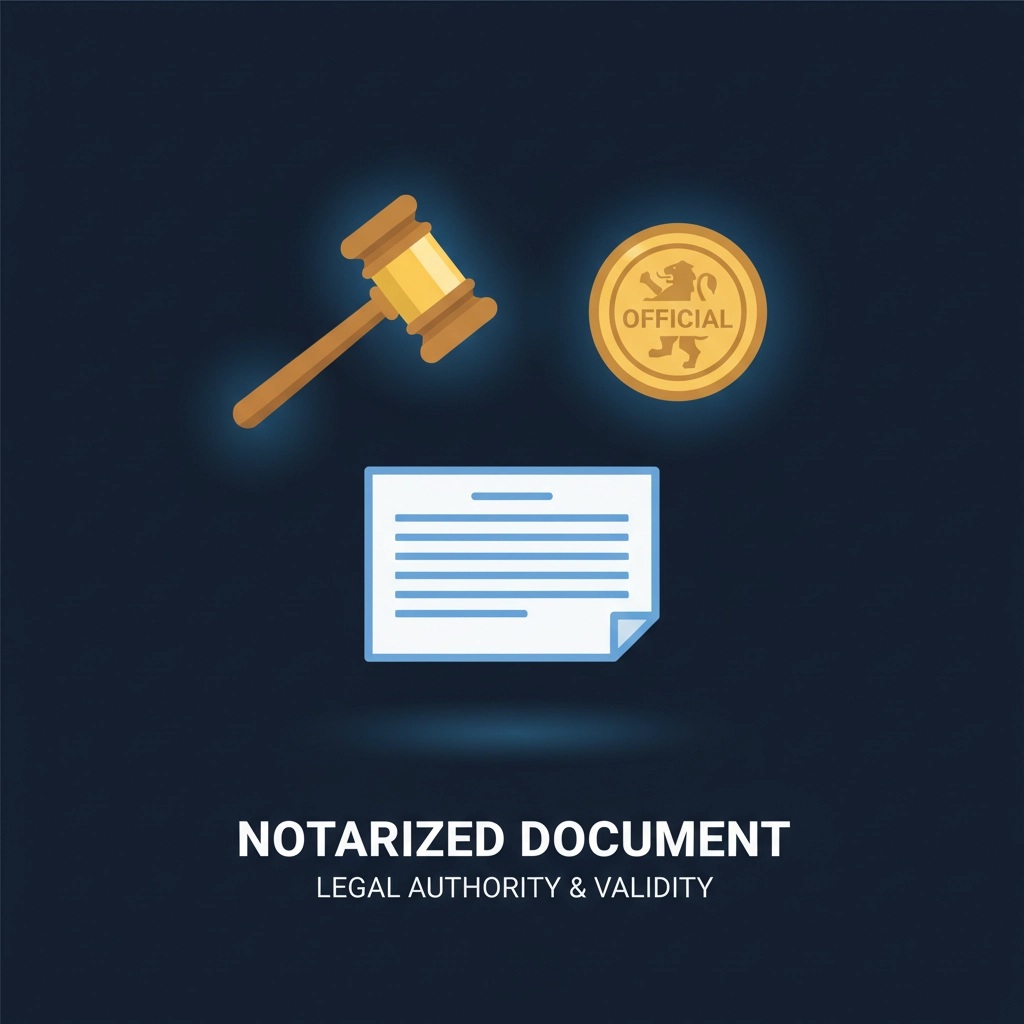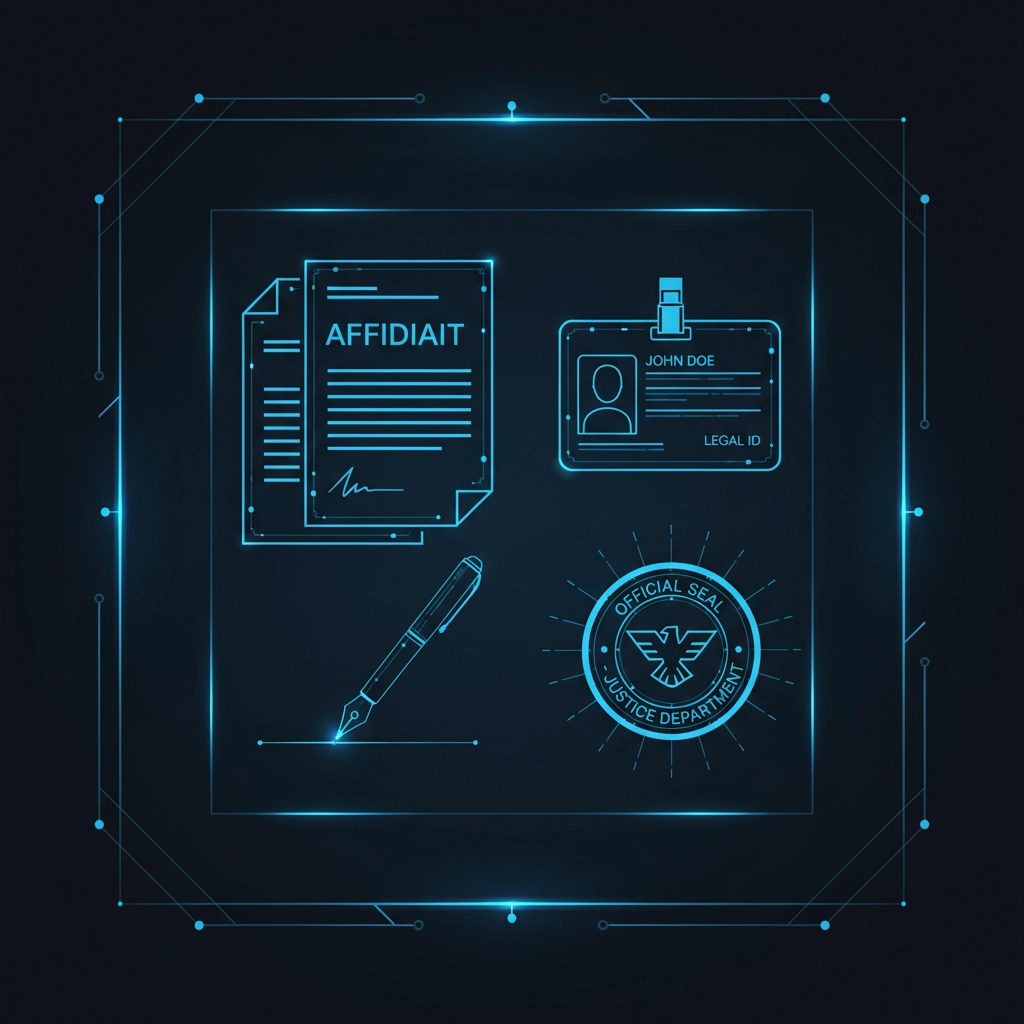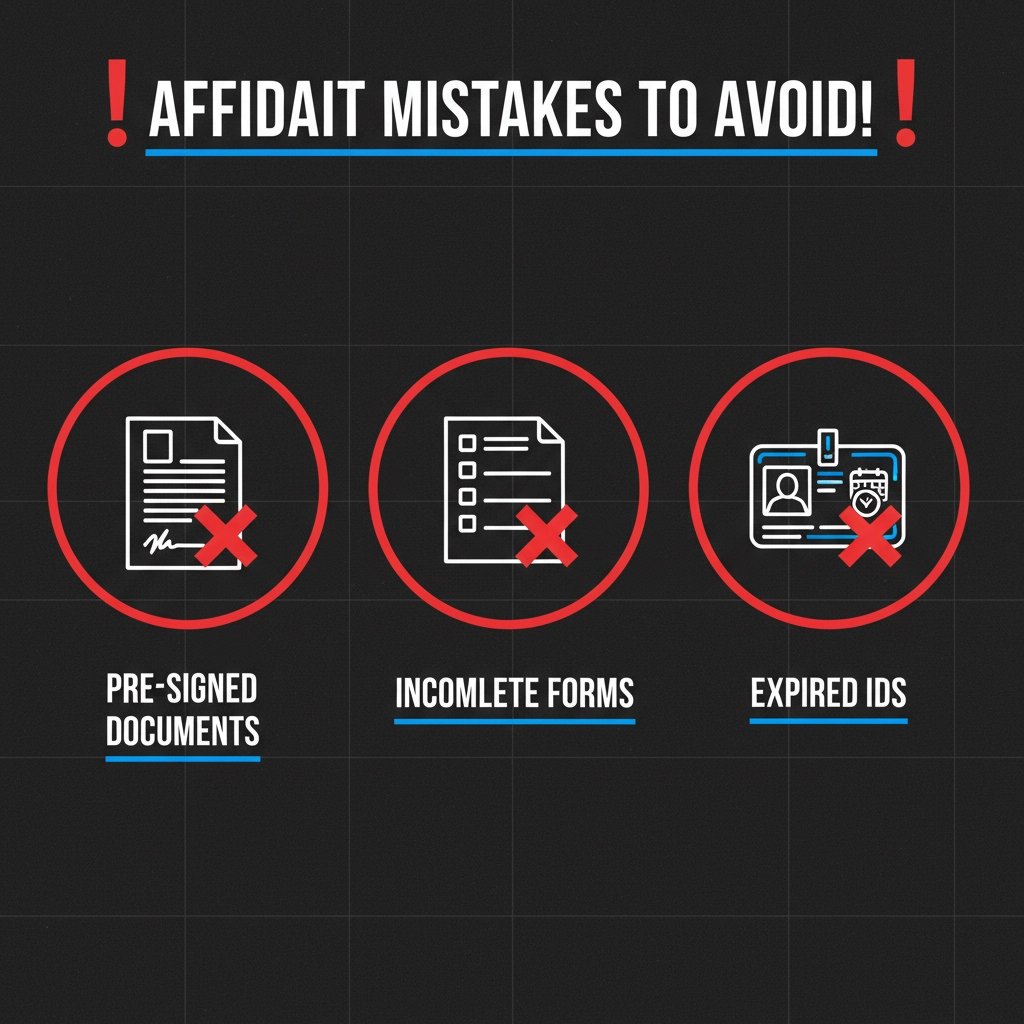Need to get your affidavit notarized fast? Our instant notarization platform connects you with certified notaries in seconds, but first, let's make sure your affidavit is bulletproof.
Creating a legally sound affidavit doesn't have to be complicated. This guide delivers everything you need to write, structure, and notarize your affidavit correctly the first time.
What Makes an Affidavit Legally Valid?
An affidavit is your sworn written statement of facts made under oath. Think of it as your official testimony on paper: every word carries legal weight because you're promising it's true.
The key difference between a regular document and an affidavit? Notarization transforms your statement into legally admissible evidence. When a certified notary witnesses your signature and verifies your identity, your affidavit becomes a powerful legal tool.

Essential Components Every Affidavit Needs
Your affidavit must include these specific elements to hold up in legal proceedings:
Clear Title: Start with "Affidavit of [Your Name]" or "General Affidavit" so there's no confusion about the document type.
Personal Information: Include your full legal name, address, and relevant background details in the opening section.
Oath Statement: Use first-person language: "I, [Full Name], being duly sworn, depose and state as follows:"
Factual Statements: Present each fact in separate, numbered paragraphs. Be specific: include exact dates, times, locations, and names.
Supporting Evidence: Reference any attached documents, photos, or exhibits that support your statements.
Signature Block: Leave space for your signature, printed name, and date. Never sign before meeting with the notary.
Notary Section: Designate clear space for the notary's signature, seal, and commission information.
Step-by-Step Affidavit Creation Process
Step 1: Draft Your Statement
Write in clear, factual language. Avoid opinions or speculation: stick to what you personally witnessed or experienced. Each paragraph should contain one specific fact with complete details.
Step 2: Review for Accuracy
Double-check every name, date, and detail. Inaccuracies can invalidate your entire affidavit and potentially expose you to perjury charges.
Step 3: Format Professionally
Type your affidavit using standard business formatting. Handwritten affidavits are acceptable but typed documents appear more professional and are easier to read.
Common Affidavit Types and Their Uses
Identity Affidavits: Confirm your identity when official documents are unavailable or contain errors.
Residency Affidavits: Establish where you live for legal, educational, or government purposes.
Income Affidavits: Verify your financial situation for loans, assistance programs, or legal proceedings.
Witness Affidavits: Document what you observed during specific events or incidents.
Name Change Affidavits: Establish the use of different names throughout your life.

The Notarization Process Simplified
Getting your affidavit notarized streamlines into five simple steps:
Prepare Your Documents: Gather your unsigned affidavit and government-issued photo ID.
Find Your Notary: Connect instantly with certified notaries through our platform, or visit local banks, law offices, or shipping stores.
Verify Your Identity: The notary examines your ID to confirm you are who you claim to be.
Take the Oath: Swear or affirm that your statements are true and accurate.
Complete the Process: Sign in the notary's presence, then watch them apply their official seal and signature.
What to Expect During Your Notary Appointment
Your notary will ask you to raise your right hand and swear that your affidavit contains only truthful statements. This oath carries serious legal consequences: providing false information constitutes perjury.
The notary verifies your identity but doesn't validate the accuracy of your statements. Their role focuses on confirming you are who you claim to be and that you signed willingly.

Sample Affidavit Template
Here's a basic template you can customize for your specific needs:
GENERAL AFFIDAVIT
State of [Your State]
County of [Your County]
I, [Your Full Legal Name], being duly sworn, depose and state as follows:
-
I am over the age of 18 years and am competent to make this affidavit.
-
I am a resident of [City, State] and have personal knowledge of the facts stated herein.
-
[Insert your specific factual statements here, one per paragraph]
-
[Continue with additional numbered paragraphs as needed]
I declare under penalty of perjury that the foregoing is true and correct.
_________________________ Date: ___________
[Your Signature]
[Your Printed Name]
NOTARY SECTION
Subscribed and sworn to before me this _____ day of _____, 20.
Notary Public
My commission expires: ___________
Remote Notarization: The Modern Solution
Traditional notarization requires scheduling appointments and traveling to meet notaries in person. Remote online notarization eliminates these hassles by connecting you with certified notaries through secure video calls.
Our remote notarization service delivers the same legal validity as in-person meetings while saving you time and travel costs. You'll complete the entire process from your home or office in minutes.

Critical Mistakes That Invalidate Affidavits
Signing Before Notarization: Never sign your affidavit until you're in the notary's presence. Pre-signed documents cannot be legally notarized.
Incomplete Information: Missing dates, names, or specific details weaken your affidavit's credibility and usefulness.
Opinion Instead of Facts: Stick to what you know firsthand. Avoid speculation, assumptions, or hearsay.
Inadequate Notary Space: Ensure sufficient room for the notary's signature, seal, and commission information.
Wrong Identification: Bring current, government-issued photo ID. Expired or non-government IDs won't work.
Legal Weight and Consequences
Affidavits carry the same legal weight as courtroom testimony. Making false statements in an affidavit constitutes perjury: a serious criminal offense that can result in fines and imprisonment.
Courts and government agencies rely on affidavits because the oath requirement deters false statements. This legal protection makes properly notarized affidavits powerful evidence in legal proceedings.
When You Need Professional Help
While simple affidavits are straightforward to create, complex legal situations benefit from attorney guidance. Consider consulting a lawyer when:
- Your affidavit involves complicated legal issues
- Multiple parties dispute the facts you're stating
- The affidavit relates to criminal proceedings
- Significant financial consequences depend on your statements

Cost and Timeline Expectations
Notary fees vary by state but typically range from $2-25 per signature. Remote notarization often costs slightly more but saves travel time and scheduling hassles.
Most notarizations complete within 10-15 minutes. Our remote service connects you with available notaries instantly, eliminating wait times and scheduling conflicts.
Final Preparation Checklist
Before your notarization appointment:
- Review your affidavit for accuracy and completeness
- Gather current government-issued photo ID
- Confirm notary fees and payment methods
- Prepare any supporting documents you're referencing
- Ensure you can swear truthfully to all statements
Your affidavit becomes a permanent legal record once notarized. Taking time to prepare properly protects you from future complications and ensures your document serves its intended purpose effectively.
Getting your affidavit notarized doesn't have to disrupt your day. With proper preparation and the right notarization service, you'll have your legally binding document in hand within minutes, ready to submit wherever needed.
